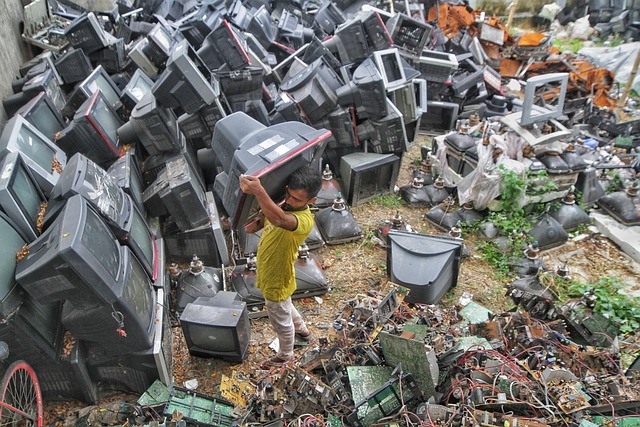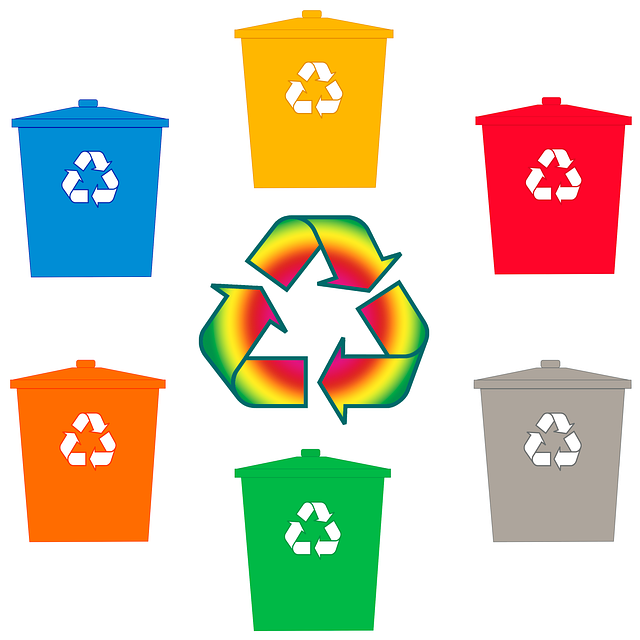Boston and New York City lead in e-waste recycling through partnerships between tech businesses, schools, and local governments, promoting environmental sustainability and reducing electronic waste in landfills. These collaborations offer efficient disposal, cost savings, and enhanced responsibility, aligning with city initiatives like NYC's e-waste collection for events and computer recycling programs.
In today’s digital age, managing electronic waste responsibly is non-negotiable. Business e-waste recycling partnerships play a pivotal role in this effort. This article explores these collaborative initiatives, focusing on successful models like Boston and New York City. We delve into the benefits they bring to businesses and communities alike, from environmental stewardship to cost savings. By understanding these partnerships, we can foster more sustainable practices across urban centers, transforming e-waste into valuable resources rather than hazardous remnants.
- Understanding E-Waste Recycling Partnerships
- Boston and NY: A Model for Collaboration
- Benefits of Business-Community Recycling Initiatives
Understanding E-Waste Recycling Partnerships

E-waste recycling partnerships are crucial components in managing and reducing the vast amount of electronic waste generated by businesses. In cities like Boston and New York, where technology sectors thrive, efficient e-waste management is essential to prevent environmental harm and resource loss. These partnerships involve collaboration between businesses, specialized recycling centers, and sometimes local governments, to ensure proper disposal or reuse of electronic equipment.
Boston, known for its bustling tech scene, offers various electronic recycling centers that cater to both residential and business needs. Similarly, New York City, with its dense population and diverse industries, has robust e-waste management systems in place. For businesses looking to responsibly dispose of their old electronics, boston electronic recycling centers open late and NYC e-waste management for businesses provide convenient solutions, ensuring hazardous materials are handled safely and in compliance with environmental regulations.
Boston and NY: A Model for Collaboration

Boston and New York City, two bustling metropolises known for their dynamic economies, have also become models for collaborative e-waste recycling initiatives. In Boston, partnerships between tech companies and schools have fostered innovative computer recycling programs, ensuring old electronics are responsibly disposed of while providing valuable resources to educational institutions. This approach not only promotes environmental sustainability but also closes the digital divide by offering refurbished technology to those in need.
In New York City, with its high concentration of green tech startups and established corporations, e-waste recycling has become a priority. Manhattan’s businesses are leading the way in proper electronic waste disposal, collaborating with city initiatives to ensure that hazardous materials are recycled or disposed of safely. NYC electronic waste recycling statistics show significant improvements due to these partnerships, demonstrating the impact of collective action in addressing the growing issue of e-waste management.
Benefits of Business-Community Recycling Initiatives

Business-community partnerships for e-waste recycling initiatives offer numerous benefits, especially in densely populated urban centers like Boston and New York City (NYC). These collaborations foster sustainable practices by providing efficient channels for the proper disposal and recycling of electronic waste, or e-waste. For NYC small businesses and large corporations alike, partnering with specialized e-waste recycling programs ensures that outdated electronics are handled responsibly without contributing to the growing problem of electronic waste in landfills.
By participating in such initiatives, businesses can contribute to a greener environment while enjoying cost savings through bulk recycling processes. Moreover, these partnerships often include educational components that raise awareness about responsible e-waste management among employees and customers, aligning with the city’s efforts to promote sustainable practices (such as nyc e-waste collection for events and nyc large scale computer recycling). This holistic approach not only benefits the environment but also enhances a company’s public image and community engagement.
Business e-waste recycling partnerships, as exemplified by collaborations between Boston and New York City, offer a sustainable model for managing electronic waste. These initiatives not only reduce environmental impact but also foster community engagement. By joining forces, businesses can leverage resources and expertise to implement effective e-waste recycling programs, ultimately contributing to a greener future for urban centers like Boston and NY.














